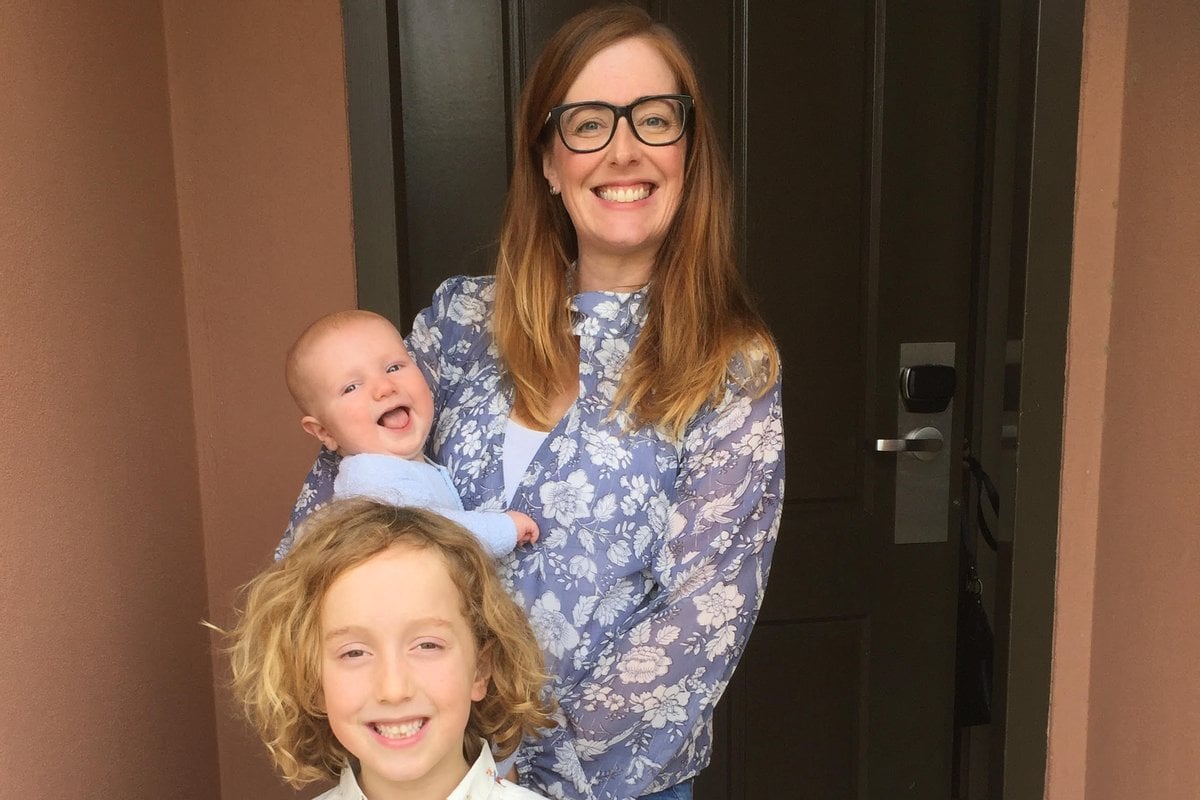
In 2008, when I was thinking about having kids, I knew a handful of women so desperate to secure paid maternity leave that they quit their jobs and moved to an organisation that offered it.
The Australian government eventually introduced an 18 week paid parental leave scheme on January 1, 2011, which continues today. Dads and partners can apply to take two weeks paid leave when the baby is born, and unpaid parental leave is available for 12 months with some flexibility for the first 24 months (if employers agree).
Once the 12 months of maternity leave time is over, mums (and it is mostly still mums) go back to work; juggling all the balls and cursing the person who came up with the concept of 'having it all'.
Because taking a few months off work after giving birth is not enough.
Watch: Madeleine West's tips for working parents. Post continues below.
Having a baby and then a child changes your whole life in a myriad of ways and yet you must now parent, as well as work, (if this is what you choose or need to do), until you retire. As the saying goes, 'We're expected to work like we aren't parents and parent like we don't work'. But it's not sustainable.


Top Comments